Irreducible Subjects: Disability and Genomics in the Past, Present and Future
Event Details
The National Human Genome Research Institute (NHGRI) and The State University of New York at Buffalo Center for Disability Studies will hold a two-day symposium entitled, “Irreducible Subjects: Disability and Genomics in the Past, Present and Future."
The symposium will address historical and present-day constructions of disability and ableism, with a focus on the history and lived experiences of people with disabilities in the context of genetics and genomics.
This event aims to develop a fuller account of the lives and experiences of people with disabilities. Conversations will link disability rights to wider NIH discussions and around inclusivity, intersectionality, equity and social justice.
Participants will discuss how disability and ability are connected to both historical and present-day eugenics, scientific and structural racism, heteronormativity, misogyny, imperialism and colonialism. Speakers will consider how scientific program funding language — and NIH communications — can better address the complexity of disability, health and wellness.
Virtual
Recorded Video
Agenda
All times are EDT.
Day One: Thursday, October 6, 2022
-
10:00 a.m. to 10:20 a.m. — Welcome and Introduction
Eric Green, NHGRI
Christopher Donohue, NHGRI
Michael Rembis, The State University of New York at Buffalo
Transcripts of Opening Remarks -
Session One: Key Concepts for Research and Bioethics
Moderator: Christopher Donohue, NHGRI -
10:20 a.m. to 10:40 a.m. — How I Became Disabled
Rosemarie Garland-Thomson, Emory University -
10:40 a.m. to 11:00 a.m. — Informed Consent, Capacity and What We Do With Genomic Information
Elizabeth Dietz, Arizona State University -
11:00 a.m. to 11:20 a.m. — Disabling Structural Ableism in Genomics and Precision Medicine Research
Maya Sabatello, Columbia University -
11:30 a.m. to Noon — Q & A
-
Noon to 1:00 p.m. — Break
-
Session Two: Life and Death
Moderator: Eric Garcia, The Independent -
1:00 p.m. to 1:20 p.m. — Time, Future and Genetics: The Temporal Complexity of Disability
Rebecca Mueller, University of Pennsylvania -
1:20 p.m. to 1:40 p.m. — Making Disability in Prenatal Genetic Testing
Meghna Mukherjee, University of California, Berkeley -
1:40 p.m. to 2:00 p.m. — How Genetic Reductionism Conceals Social Determinants: The Case of Down Syndrome and COVID-19
Sara M. Bergstresser, Columbia University -
2:00 p.m. to 2:20 p.m. — Genetics at the Intersection of Reproductive Justice and Disability Rights: Rhetoric and Practice
Nina Roesner, National Institutes of Health -
2:20 p.m. to 3:00 p.m. — Q & A
-
3:00 p.m. to 3:30 p.m. — Break
-
3:30 p.m. to 4:30 p.m. — Keynote Lecture
Dennis Tyler, Fordham University
Moderator: Sarah Bates, NHGRI
Day Two: Friday, October 7, 2022
-
10:00 a.m. to 11:00 a.m. — Keynote Lecture: Measuring the Science of Hereditary Deafness
Jaipreet Virdi, University of Delaware
Moderator: Christopher Donohue, NHGRI -
11:00 a.m. to 11:30 a.m. — Break
-
Session Three: Eugenics, Colonialism and Violence
Moderator: Neil Hanchard, NHGRI -
11:30 a.m. to 11:50 a.m. — Investigating Categories in the Treasury of Human Inheritance
Coreen McGuire, Durham University -
11:50 a.m. to 12:10 p.m. — Maternal and Infant Health and Genetic Histories of Postcolonial India
Arafaat A. Valiani, University of Oregon -
12:10 p.m. to 12:30 p.m. — Irreducible Alterity? Violence and Activism Surrounding Oculocutaneous Albinism Type II in Tanzania, 1880-2022
Jane Saffitz, Denison University -
12:30 a.m. to 1:00 p.m. — Q & A
- 1:00 p.m. to 2:00 p.m. — Break
-
Session Four: Stories that Genomics Can and Cannot Tell
Moderator: Michael Rembis, The State University of New York at Buffalo -
2:00 p.m. to 2:20 p.m. — Carriers: What the Fragile X Gene Reveals About Scientific Discovery
Anne Skomorowsky, New York University Langone -
2:20 p.m. to 2:40 p.m. — Genetics and the Deaf Community: Cumulative Decision-Making, Eradication and Flourishing
Teresa Blankmeyer Burke, Gallaudet University -
2:40 p.m. to 3:20 p.m. — The GURU Program and “No ELSI About Us Without Us”
Aubrey Mansfield, James Tabery, Leslie Francis, University of Utah
Maya Sabatello, Columbia University - 3:20 p.m. to 4:00 p.m. — Q & A
-
4:00 p.m. to 4:05 p.m. — Closing Remarks
Christopher Donohue, NHGRI
Michael Rembis, The State University of New York at Buffalo
Biographies
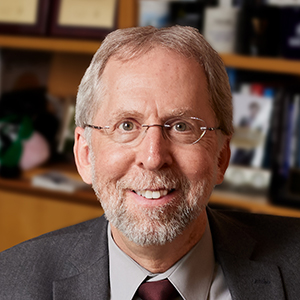
Follow on Twitter: @NHGRI_Director
Dr. Eric Green is the director of the National Human Genome Research Institute (NHGRI) at the U.S. National Institutes of Health (NIH). He is the third NHGRI director, having been appointed by NIH director Dr. Francis Collins in 2009. Dr. Green has been at the Institute for more than 25 years, during which he has had multiple key leadership roles. He served as the Institute’s scientific director for 7 years, chief of the NHGRI Genome Technology Branch for 13 years and founding director of the NIH Intramural Sequencing Center for 12 years. For just over two decades, Dr. Green directed an independent research program that included integral start-to-finish roles in the Human Genome Project and groundbreaking work on mapping, sequencing, and characterizing mammalian genomes. Dr. Green earned his M.D. and Ph.D. degrees in 1987 from Washington University in St. Louis; coincidentally, the word “genomics” was coined in that same year. During his career, Dr. Green has authored and co-authored over 375 scientific publications.
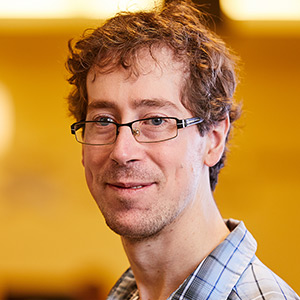
Christopher Donohue is the historian of the National Human Genome Research Institute. He has edited and co-edited two journal collections since 2018. Two others, on Vitalism and the Contemporary Life Sciences with Charles Wolfe (for Springer Nature) and Perspectives on the Human Genome Project and Genomics with Alan Love (for Minnesota Studies in Philosophy of Science) are under review. A further volume for Patterns of Prejudice on “Slavdom,” genes and “Race Science”: Between Nation-Building and the Global Racial Imaginary is in preparation with Victoria Shmidt and Christian Promitzer. He is also completing a book under contract for Central European University Press entitled "The Master Race in that Sense": Defenses of Eugenics and Sterilization After the Second World War.

Michael Rembis is the director of the Center for Disability Studies and an associate professor in the Department of History at The State University of New York at Buffalo. He has authored and edited many books, articles and book chapters. His research interests include the history of institutionalization, mad people's history, the history of disability and the history of eugenics. He is currently working on a book entitled Writing Mad Lives in the Age of the Asylum.
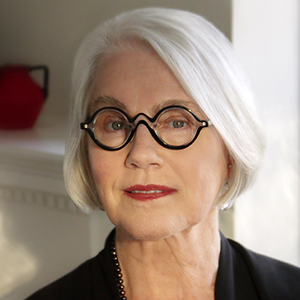
Follow on Twitter: @RGarlandThomson
Rosemarie Garland-Thompson is professor emerita of English and bioethics at Emory University and a visiting professor of healthcare ethics at UCLA. She is a senior advisor and fellow at the Hastings Center, where she is also chief project advisor for The Art of Flourishing: Conversations on Disability and Technology, a project supported by the National Endowment for the Humanities. She is a 2020 National Endowment for the Humanities Public Scholar and a Phi Beta Kappa Visiting Scholar for 2021-22.
She offers expertise in the equity, knowledge, culture and ethics of disability to a broad range of institutions and communities, with a focus on the areas of medical humanities, healthcare ethics, and diversity and inclusion initiatives that go beyond compliance.
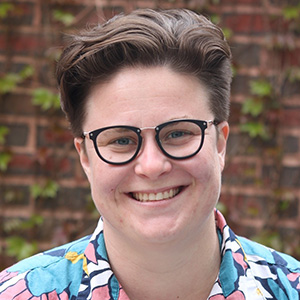
Elizabeth Dietz is a Ph.D. candidate in the Center for Biology and Society at Arizona State University and a current fellow at the Harvard Kennedy School’s Program on Science, Technology and Society. Previously, they were a project manager and research assistant at The Hastings Center, a nonprofit bioethics research institute in Garrison, New York, where they worked on projects related to gene editing and human flourishing, decision-making at the end of life and professional ethics.
Dietz writes about disability, epistemologies of choice, reproductive ethics and how counselors and bureaucrats think about justice in the relationship between information and decision-making. Their dissertation project examines how informed consent, so often imagined to enshrine liberty and gird individual autonomy, can also serve as a tool though which individuals are made responsible for systemic injustices. Dietz theorizes informed consent as a site through which personhood and capacity are assessed in a purportedly uncontroversial fashion — with significant implications for queer and disabled lives. Dietz teaches a variety of classes at the intersection of science and technology studies and bioethics, including within a genetic counseling program, and places a particular emphasis on helping students articulate the normative stakes of processes, structures and policies that have been made to appear mundane. Their work can be found in the International Journal of Feminist Approaches to Bioethics, the Disability Bioethics Reader, the forthcoming Oxford Handbook of Genetic Counseling, the International Journal of Transgender Health and elsewhere.
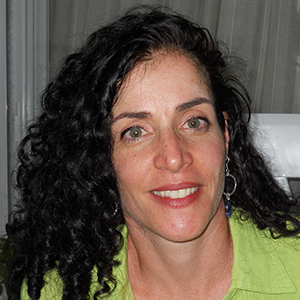
Follow on Twitter: @ColumbiaEthics
Maya Sabatello is an associate professor of medical sciences and co-director of the Precision Medicine: Ethics, Politics and Culture Project at Columbia University’s Center for Precision Medicine and Genomics, Department of Medicine; and Division of Ethics, Department of Medical Humanities and Ethics. She is a former litigator with trans-disciplinary background encompassing law, bioethics, gender and disability studies, and political science, and she has extensive experience in national and international policymaking relating to human and disability rights. Dr. Sabatello studies how biomedical technologies, genomic information and Big Data have an impact on social structures, marginalized communities and individual rights and health outcomes. Her mixed-methods and community-engaged NIH-funded research program focuses on law, society, medicine and disability; ramifications of genetic data in non-clinical settings (e.g., schools) for social, disability and racial justice; the psychosocial impact of genomic data on adolescents and families; and issues of trust, consent and inclusion of people with disabilities in precision medicine research. Dr. Sabatello currently co-chairs the NHGRI’s Community Engagement in Genomics Working Group (CEGWG) with Greta Goto and serves on the American Society of Human Genetics’ Professional Practice and Social Implications Committee and the Institutional Review Board of NIH’s All of Us research program.
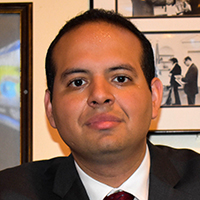
Follow on Twitter: @EricMGarcia
Eric Garcia is the senior Washington correspondent for The Independent and the author of the book, We're Not Broken: Changing the Autism Conversation. He is also a columnist for MSNBC. Previously, he was an assistant editor at the Washington Post’s Outlook section and an associate editor at The Hill, as well as a correspondent for National Journal, MarketWatch and Roll Call. He has also written for the Daily Beast, the New Republic and Salon.com. Garcia is a graduate of the University of North Carolina at Chapel Hill.
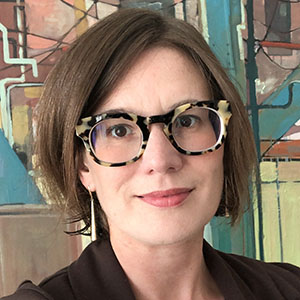
Rebecca Mueller is T32 post-doctoral fellow in the Ethical, Legal and Social Implications of Genetics and Genomics in the Department of Medical Ethics and Health Policy at the University of Pennsylvania. She also teaches ethics and mentors student research in the Master of Science Genetic Counseling Program. Mueller completed her Ph.D. in the history and sociology of science at the University of Pennsylvania and her masters in genetic counseling at Arcadia University. For her book project, The Genome and the Biome: Cystic Fibrosis at Six Feet Apart, Mueller uses cystic fibrosis as a case study of novel diagnostic technologies, risk and sociality. In her T32 fellowship, Mueller is investigating the impact of genetic diagnoses on individuals’ conceptions of time and the future, adding to the nascent literature on disability and temporality through a comparative study of adults with cystic fibrosis and beta thalassemia. Mueller is a recipient of the Jack D. Pressman Burroughs Wellcome Fund Career Development Award in 20th Century History of Medicine or Biomedical Sciences.

Follow on Twitter: @meg_mukherjee
Meghna Mukherjee is a Ph.D. candidate in sociology at the University of California, Berkeley. She studies how fertility and genetic technologies reflect and reproduce social inequities. Meghna’s dissertation explores how growing reliance on prenatal testing in the United States redefines disability, deserving existence and reproductive decision-making. Her research is supported by the Institute for Citizens and Scholars.
Meghna is a fellow at Baylor College of Medicine’s Center for Medical Ethics and Health Policy where she studies social and bioethical implications of polygenic embryo screening. Her research also includes questions surrounding third-party assisted reproduction in the United States and India, human genome editing and direct-to-consumer genetic health testing. Meghna’s work has been published in outlets including Social Science and Medicine, Social Problems and PLOS One.
Meghna holds an M.A. in sociology from U.C. Berkeley, and graduated magna cum laude with a B.A. in sociology with honors and human rights from Columbia University
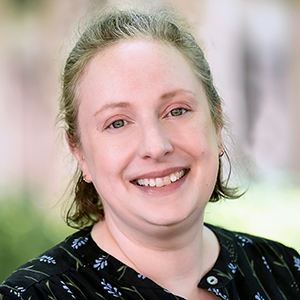
Sara Bergstresser is a lecturer in bioethics at Columbia University who teaches courses on disability and bioethics and mental health ethics. She earned a Ph.D. in anthropology from Brown University, a masters of public health from Harvard School of Public Health, and an M.S. in bioethics from Columbia. Sara has also been an NIH postdoctoral fellow in mental health policy at Harvard Medical School and in psychiatric epidemiology at Columbia Mailman School of Public Health.
Sara works on topics of mental health policy and institutionalization with a focus on disability studies, human rights and anti-carceral frameworks. Her doctoral research in anthropology focused on deinstitutionalization and community mental health care in Italy. She continues to work in international comparative mental health policy with particular focus on involuntary treatment, autonomy and the history of “dangerousness.”
Her more recent work also incorporates global bioethics. From 2017-2019, Sara was a lecturer and program coordinator for bioethics education in the Faculty of Medicine at the Chinese University of Hong Kong. Sara is currently focusing her writing on institutionalization, congregate facilities and COVID-19, and her recent publications have appeared in the AMA Journal of Ethics, AJOB Neuroscience, The International Journal of Critical Diversity Studies, Developing World Bioethics and Asian Bioethics Review.
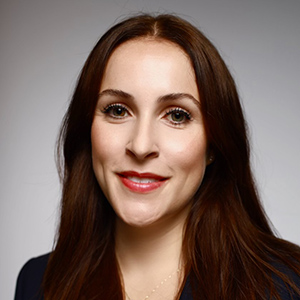
Nina Roesner is a postdoctoral fellow in the National Institutes of Health Department of Bioethics. Her research is focused on the ethics of reproductive health policy, particularly in relation to disability, genomics and emerging technologies. She earned her J.D. at Harvard Law School, where she worked on issues related to chronic disease and novel therapeutics at the Center for Health Law and Policy Innovation.
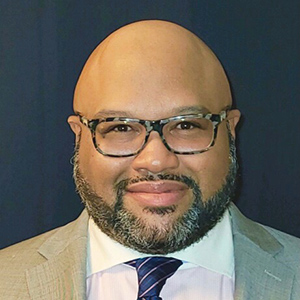
Follow on Twitter: @proftyler
Dennis Tyler is an associate professor of English at Fordham University. An expert in African American literature, disability studies and critical race studies, he is the author of Disabilities of the Color Line (NYU Press, 2022). His essays and reviews have been published in African American Review, Journal of Literary & Cultural Disability Studies, Gender: Space, The Feminist Wire, Oxford Bibliographies and American Literary History Online Review.
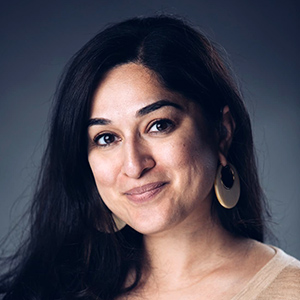
Follow on Twitter: @jaivirdi
Jaipreet Virdi is an associate professor in the Department of History at the University of Delaware whose research focuses on the ways medicine and technology impact the lived experiences of disabled people. She is the author of Hearing Happiness: Deafness Cures in History (University of Chicago Press, 2020), is co-editor of Disability and the Victorians: Attitudes, Legacies, Interventions (Manchester University Press, 2020) and has published articles on diagnostic technologies, audiometry and the medicalization of deafness.
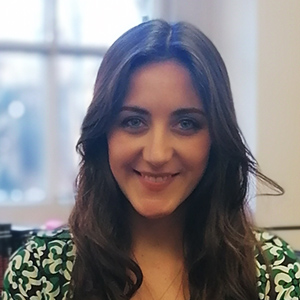
Follow on Twitter: @coreen_anne
Coreen McGuire is a lecturer in twentieth-century British history at Durham University. Her first book, Measuring Difference, Numbering Normal: Setting the standards for disability in the interwar period, combined history of medicine, science and technology studies, and disability history. She was the medical historian on the Life of Breath Project between 2017 and 2020 and won the Disability History Association prize for outstanding article in 2020. She is working on a co-authored book project on British scientist Dr Phyllis Kerridge’s contributions to science in Britain with Dr. Jaipreet Virdi for Johns Hopkins Press. She will commence a 5-year Wellcome University Award project with Durham University on “When Categories Constrain Care: Investigating Social Categories in Health Norms through Disability History 1909-1958" in 2023.
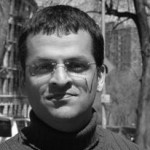
Follow on Twitter: @arafaatvaliani
Dr. Arafaat A. Valiani is a medical sociologist and a historian of science and genetics. His current intellectual interests focus on questions of decolonization regarding biomedicine — specifically genomics — difference and precision medicine, especially among South Asians and other racialized peoples. His teaching and scholarship contribute to transdisciplinary debates about difference, social justice and biomedicine; the sociology of knowledge and medicine; history of science and genetics; gender and South Asian Studies. His contribution to these forms of knowledge sharing strives to productively impact understandings of health equity for racialized communities.
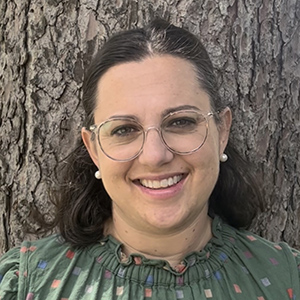
Jane Leslie Saffitz is an assistant professor of cultural and medical anthropology at Denison University in Granville, Ohio. She holds a Ph.D. in anthropology from the University of California, Davis (2019); a masters in social work in international social welfare from Columbia University (2011); and a B.A. in history from Washington University in St. Louis (2007). Based on over 30 months of fieldwork conducted between 2012 and 2018, her current research uses primarily ethnographic and archival methods to investigate the emergence of unruly categories of human difference in East Africa — first in a project on albinism and subsequently in a project on formations of intersexuality — as sites of ontological and epistemological contestation. She argues that the rise of nascent categories not only evince new subjectivities and political and ethical possibilities for the future, but also come to inflect a range of tensions across sub-Saharan Africa, particularly around governance and state-NGO-media relations; health systems, healing epistemologies and theories of bodily difference; and complex entanglements between science, religion and the realm of the unseen. Her teaching interests span medical and cultural anthropology, postcolonial technoscience, medical humanities and disability studies.
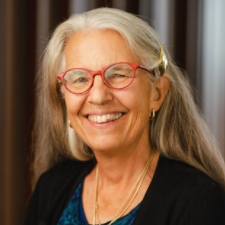
Leslie P. Francis holds joint appointments in law and philosophy, where she holds the ranks of distinguished professor of law and philosophy, Alfred C. Emery Professor of Law and associate dean for faculty research and development in the University of Utah, College of Law. She is the immediate past director of the Center for Law and Biomedical Sciences (LABS) in the S.J Quinney College of Law. Professor Francis received her B.A. from Wellesley College, graduating with high honors in philosophy and as an elected member of Phi Beta Kappa, and her Ph.D. in philosophy from the University of Michigan. After joining Utah's philosophy faculty, she received her J.D. from the University of Utah. She teaches and writes extensively in the areas of health law, bioethics and disability. Her most recent books, co-authored with John Francis, are Sustaining Surveillance: The Importance of Information for Public Health (Springer 2021) and Privacy: What Everyone Needs to Know (Oxford 2017). She is a life member of the American Law Institute (elected in 1985) and in 2015 was president of the Pacific Division of the American Philosophical Association.
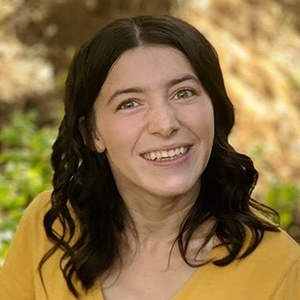
Aubrey Mansfield is a graduate student at the University of Utah, working towards earning her master’s degree in recreational therapy. She received her bachelor’s degree in recreational therapy from the University of Utah. This is the second year that Aubrey has been a mentored research assistant in the Graduate and Undergraduate Researchers of UCEER (GURU) program. The current research project that Aubrey is working on with her mentor focuses on Utah’s history of eugenics and the consequences that the people who were primarily affected have faced and continue to face. Upon joining the GURU program, Aubrey came to develop a deep appreciation for the program and an ever-growing passion for Ethical, Legal and Social Implications (ELSI)-centered research. Having a physical disability herself, Aubrey is very passionate about being an advocate for individuals who identify as having a disability. Her goal as a recreational therapist is to open a private practice where people who have physical disabilities can receive individualized recreational therapy services and other types of support for navigating life with a disability.
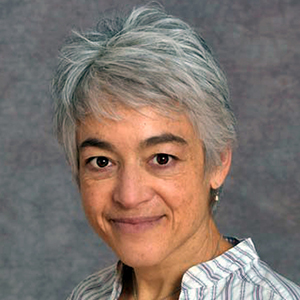
Anne Skomorowsky is a clinical instructor in psychiatry at NYU Grossman School of Medicine and practices in New York City. Her writing has appeared in The New York Times, The Wall Street Journal, Slate and Scientific American Mind, among others. Her book, The Carriers: What the Fragile X Gene Reveals About Family, Heredity and Scientific Discovery, was published in 2022 by Columbia University Press.
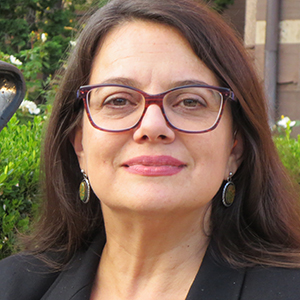
Teresa Blankmeyer Burke is director of the school of arts and humanities and professor of philosophy at Gallaudet University, a bilingual university that uses American Sign Language and English to serve deaf, hard of hearing and hearing students in Washington, DC. She is the only signing Deaf philosopher in the world with a doctorate in philosophy. Her publications cover a wide range of genres, including peer-reviewed scholarship in philosophy, bioethics, policy and sign language interpreting ethics. She has also written for the general public, including mainstream media publications, creative nonfiction and poetry in both American Sign Language and English. Dr. Burke has served on a number of national and international committees for a variety of organizations, including the United Nations, World Federation of the Deaf, the American Philosophical Association, the Hearing Loss Association of America and the National Association of the Deaf (USA). Teresa divides her time between Washington, DC, and Barelas in Albuquerque, New Mexico. She is currently working on a philosophical memoir about grief and resilience about her experience as a young widow and single mother in Cody, Wyoming.
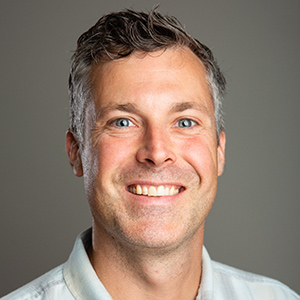
Jim Tabery is a professor at the University of Utah in the Department of Philosophy and a member of the Center for Health Ethics, Arts and the Humanities. He is co-PI of the Utah Center for Excellence in ELSI Research (UCEER), and PI of its Graduate and Undergraduate Researchers of UCEER (GURU) program, the first Diversity Action Plan devoted to providing mentorship, curricular and research resources to students who identify as having a disability.
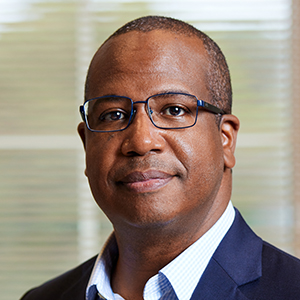
Dr. Hanchard received his MD (MBBS with Honours) from the University of the West Indies in Kingston, Jamaica, after which he was award the Jamaica Rhodes Scholarship to the University of Oxford, UK. There, he completed a D.Phil. in Human Genetics and Clinical Medicine in the laboratory of Prof. Dominic Kwiatkowski, where he worked on population differentiation, genome variation, and natural selection in the Major Histocompatibility Complex. After returning to Jamaica to study sickle cell disease and severe childhood malnutrition as a clinical research scholar, he moved to the US to do his pediatric residency at the Mayo Clinic in Rochester, Minnesota, before completing a Medical Genetics fellowship at Baylor College of Medicine (BCM) in Houston, Texas. Soon after, he started his own lab as a tenure-track physician scientist in the Department of Molecular and Human genetics at BCM, focusing on the genetics of complex childhood diseases in diverse populations. In addition, Dr Hanchard cared for patients with rare genetic disorders and directed a medium throughput core genetics laboratory, in addition to mentoring and teaching graduate students, medical residents, and medical students. His research has provided insight to the population genetics of the mutation that causes sickle cell disease, identified novel genes in the development of congenital cardiovascular disorders and rare Mendelian disorders, and made inroads to understanding the pathogenesis of diabetic embryopathy, severe childhood malnutrition and transfusion alloimmunization in sickle cell disease.
Dr. Hanchard has served in multiple advisory positions for research institutions, the American Society for Human Genetics (ASHG), and genetics journals, and he was the first Early-Career board member of ASHG. He is a fellow of the American College of Medical Genetics and the Society for Pediatric Research. Dr. Hanchard is the current Chair of the Genome Analysis working group of the H3Africa Consortium and an NIH Distinguished Scholar.
Slides (PDF)
Maternal and Infant Health and Genetic Histories of Postcolonial India
Investigating Categories in the Treasury of Human Inheritance
Informed Consent, Capacity and What We Do With Genomic Information
The GURU Program and “No ELSI About Us Without Us”
Keynote Lecture: Measuring the Science of Hereditary Deafness
Irreducible Alterity? Violence and Activism Surrounding Oculocutaneous Albinism Type II in Tanzania, 1880-2022
Disabling Structural Ableism in Genomics and Precision Medicine Research
Making Disability in Prenatal Genetic Testing
Genetics at the Intersection of Reproductive Justice and Disability Rights: Rhetoric and Practice
Time, Future and Genetics: The Temporal Complexity of Disability
How I Became Disabled
How Genetic Reductionism Conceals Social Determinants: The Case of Down Syndrome and COVID-19
Last updated: November 21, 2022
